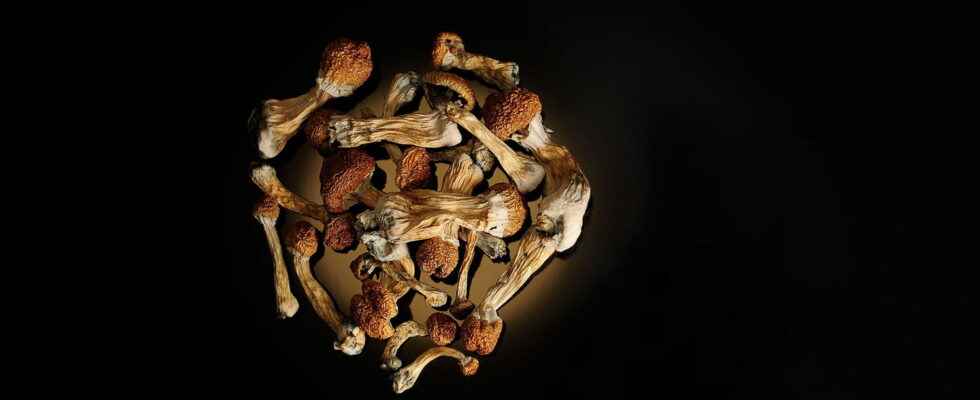Psilocybin, a substance found in magic mushrooms, may reduce symptoms of depression when unresponsive to antidepressants, a new study has found.
About a third of people in France with depression do not respond to antidepressants, leading to the diagnosis of treatment-resistant depression (TRD). What to do when depression resists conventional treatments? Scientific research focuses on the therapeutic effect of psychedelics for several years. Psilocybina substance found in hallucinogenic mushroomswould be effective as a potential antidepressant. “A single dose of 25 milligrams helped reduce symptoms of depression in people for whom several conventional treatments had failed” revealed the largest clinical study ever conducted on the subject and published on November 3 in the scientific journal The New England Journal of Medicine.
30% of depressive patients in the study in remission
Researchers have evaluated the effect of psilocybina psychoactive substance naturally present in hallucinogenic mushrooms on the symptoms of depression in 233 patients from North America and Europe for whom conventional treatments failed. The scientists used a synthetic version of psilocybin, produced by start-up Compass Pathway (which funded the trials). They divided them into 3 groups to which they administered 1 milligram, 10 milligrams or 25 milligrams. The subjects of the study benefited in parallel from a psychological follow-up. To assess the effectiveness of psilocybin, the researchers compared the score on Montgomery-Asberg Depression Rating Scale before administration of psilocybin and after 3 weeks of treatment. This scale assesses the severity of depression via a questionnaire in patients with mood disorders. It is also frequently used to measure the changes brought about by the treatment of depression. the average Montgomery-Asberg total score was initially 32 or 33. After 3 weeks, it decreased by 12 points in patients who received a dose of 25mg, 8 points in those who received 10mg and 5.4 points in the 1mg group. The researchers concluded that aafter a single dose of 25 mg of psilocybin, approximately 30% of patients with TRD were in remission at week 3. In other words, they experienced a reduction in their depressive symptoms. What about Side effects ? They appeared in 179 participants in the form of headaches, nausea and dizziness. Suicidal ideation or behavior or self-harm occurred in all groups.
Hallucinogens, a new alternative to antidepressants?
Psilocybin acts on the serotonin receptorsparticularly involved in the management of moods. “It is thought that acting on this receptor can make the brain work with greater flexibility, allowing regions to connect and communicate more easily. Connections underlying unhealthy brain states, such as treatment-resistant depression, may reconnect in healthier ways after the effects of the drug wear off” can we read in the press release of the start-up Compass Pathways. “Larger and longer trialsincluding a comparison with existing treatments, are needed to determine the efficacy and safety of psilocybin for this disorderconclude the study researchers. The goal of the trial was to find the appropriate dose for a larger Phase 3 pivotal program, which the start-up plans to start before the end of the year. are we moving towards the use of hallucinogens as alternatives to antidepressants? ketamine, another hallucinogen, has also been studied for its anti-depressive properties by researchers from Inserm, CNRS, Sorbonne University and doctors from AP-HP at the Institut du Cerveau. “Patients with antidepressant-resistant depression have a significant decrease in their symptoms and become more receptive to “positive” experiences after a week of ketamine treatmentconcludes their study published in the journal JAMA Psychiatry September 28.
Sources:
– COMPASS Pathways announces the publication of the Phase 2b study of COMP360 psilocybin therapy for treatment-resistant depression in the New England Journal of Medicine, COMPAS News November 3, 2022.
– Single-dose psilocybin for a treatment-resistant episode of major depression, The New England Journal of Medicine, November 3, 2022.
– Assessing the early effects of ketamine on belief-updating biases in patients with treatment-resistant depression, JAMA Psychiatry, September 28, 2022.
